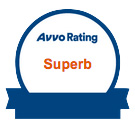Chapter 7 Bankruptcy
Chapter 7 Bankruptcy is the most frequently filed type of bankruptcy. When the word bankruptcy is mentioned most people think of Chapter 7. Chapter 7 Bankruptcy sometimes requires the liquidation of certain assets and is often referred to as a liquidation bankruptcy.
Fortunately, exemptions are available to prevent your assets from being subject to liquidation. In Pennsylvania and New Jersey debtors have the choice of selecting their state’s exemptions or the exemptions permitted under federal law. Most debtors will find that the exemptions will allow them to keep all of their property after all of their debt has been discharged in a Chapter 7 Bankruptcy. Typically, exempt property will include such items as your home, vehicle, home furnishings, wages, cash and personal effects.
The debtor’s level of income is an important consideration in determining eligibility for Chapter 7 Bankruptcy. If it is determined that the debtor has sufficient income for the repayment of his or her debts than it may be necessary to consider options outside of Chapter 7 Bankruptcy, including Chapter 13 Bankruptcy, to accomplish the elimination of debt.
Chapter 7 Bankruptcy ProcedureA Chapter 7 Bankruptcy will typically have the following procedure:
- The bankruptcy petition is prepared and filed electronically with the Bankruptcy Court. The petition will include information about the debtor’s income, expenses, assets, exemptions and debts.
- After the bankruptcy petition is filed an automatic stay will go into effect. The automatic stay prohibits most creditors from continuing with collection activities, which can provide welcome relief to debtors as well as the opportunity to regroup during bankruptcy. There are some exceptions to the automatic stay.
- The Trustee is appointed to oversee the debtor’s case. The Trustee will review the bankruptcy petition and determine if the debtor is eligible for a discharge or elimination of his or her debts.
- Approximately thirty days after the bankruptcy petition is filed, a creditors’ meeting is held which must be attended by the debtor. At the meeting, creditors and the Trustee have the opportunity to ask questions regarding the debtor’s assets, income and other items addressed in the bankruptcy petition. All testimony given by the debtor at the meeting is under oath.
- If the Trustee is satisfied that the debtor is entitled to a discharge of debts, a discharge order will generally be issued by the Bankruptcy Court sixty days from the date of the creditors meeting.
The following is a list of some of the types of debt that may be dischargeable in a Chapter 7 bankruptcy:
- Credit card
- Medical bills
- Judgments and garnishments
- Unsecured loans
- Rent
- Utility bills
- Certain taxes
The following is a list of some of the types of debt that may not be dischargeable in a Chapter 7 Bankruptcy:
- Spousal or child support
- Debts for personal injury caused by the debtor’s operation of a motor vehicle while intoxicated
- Most student loans
- Court fines and penalties, including criminal restitution
- Debts to government agencies for fines and penalties
- Certain taxes
Many debtors who are considering filing for bankruptcy are overwhelmed by their financial predicament. Chapter 7 Bankruptcy provides a way out and the opportunity to start fresh. Please do not hesitate to call Attorney Husain to arrange an office consultation to decide if bankruptcy is right for you.
 Karim P. Husain Attorney at Law Home
Karim P. Husain Attorney at Law Home


